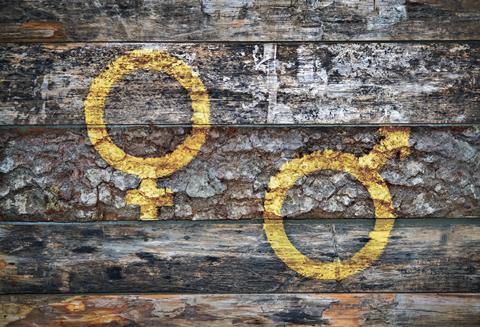In the light of the NHS charter to stress biological sex when placing patients in wards, Kate Orson explains why she believes it is important for Christians to understand what the Bible says.

A new NHS constitution plans to allow patients to request single sex wards, which would result in trans people being given single rooms.
In a recent article for Woman Alive, Bukunola Adekolu writes that this constitution is ‘denying the existence’ of transgender individuals and that she questions whether this is about ‘genuine concern or if it is another attempt by those who firmly believe in only two gender identities to impose their belief and turn it into legislation.’
She suggests that to be Christ-like and demonstrate the love of Jesus we must acknowledge the existence of ‘diverse gender identities.’
Here’s why I disagree.
There is no biblical basis to acknowledge a difference between sex and gender.
There is no biblical basis to acknowledge a difference between sex and gender. In present conversation, sex is biological, and gender is a socially constructed role, of which there are now many options. As Genesis 5.2 says, ‘In the image of God he created them, male and female he created them.’
When God created the earth his natural order was based on there being two distinct biological sexes - those being male and female - that were able to reproduce and ‘be fruitful and multiply.’ There is no mention in the Bible about gender being a separate thing that people choose.
I had many questions about gender, and how to view it from a Christian perspective.
I am a relatively new believer (2.5 years) and so when I came to Christ, I had to reconsider my entire perspective on many aspects of our reality. I had many questions about gender, and how to view it from a Christian perspective. I came across to the testimony of Oli London, a male who identified as female, until he came to Christ and became happy in his God-given identity.
There are other stories like this; such as Laura Perry Smalt, author of Transgender to Transformed, (2019). Smalt transitioned to a male, but then changed back to female when she became a believer. In an article on her website, Smalt describes her experience of coming to faith and how; ‘the Creator of the Universe whispered to me, “Let me tell you who you are.”’
This is what’s key. When we become believers it’s not about our identity, but our identity in Christ that matters. How does God see us?
Smalt realised that her desire to be a boy actually came from envy. Growing up she’d absorbed the idea that her mother loved boys more than girls, and so her desire to be a boy was based on a falsehood, that she was not worthy to love.
This is not to claim that gender identity issues can be simply solved by knowing God, or that all believers will be convicted to detransition, as the issue is complicated and there are things in this reality that are beyond our human understanding. However, we must be clear on where the Bible stands on the matter, and act in accordance with God’s word.
The world tells us that to affirm a tran’s person’s gender identity is the most loving thing to do. However, when we do so we are breaking the ninth commandment not to lie. If we as Christians believe that God created the different sexes, then if we call a male a female then we are telling a lie.
When the Apostle Paul defines love in 1 Corinthians 13 he says, that love ‘does not rejoice at wrongdoing, but rejoices with the truth.’
Love without truth is not love at all but people pleasing. To affirm someone’s lie, is to point them in the direction of hell.
Legislation that supports having female only spaces is in line with God’s natural order for men and women and to claim otherwise is unbiblical.
Read more on the Bible
Happiness is a fundamental human goal, but what does the Bible say about it?
‘There’s no passage in the Bible about dating’
The Bible doesn’t shy away from talking about menstrual bleeding so neither should we
When it comes to trans patients on hospital wards, I personally wouldn’t mind sharing a ward with a trans patient. I don’t expect this world to be a reflection of God’s design, and I don’t want to fight or protest to attempt to make it that way. This issue has become a huge culture war, and I think as Christians we need to remember that ’we do not wrestle against flesh and blood, but against ‘the spiritual forces of evil in the heavenly places.’ (Ephesians 6:12) We need to be careful not to make issues into a flesh and blood war, which can make Christ-like love appear like hate to people who do not know us.
However, we do need to examine our own individual behaviour and when we might become deceived by worldly versions of ‘kindness’ and ‘love.’ We need to repent when we lie, and to consider how we share genuine Christ-like love, with a balance of grace and truth. In my opinion, sometimes that might involve saying no to someone’s preferred pronouns.
To say no, with love is not cruel. Parents do it all the time with children, because we know when eating too much ice cream will make them ill, or staying up too late will make them tired. A ‘no’ can be seasoned with grace. We need to do it as gently as possible, not imposing our worldview on others, (we are not the parent here) but pointing them in the direction of their heavenly parent; the God who made them. It’s not easy, but we have Jesus to guide us.




































1 Reader's comment